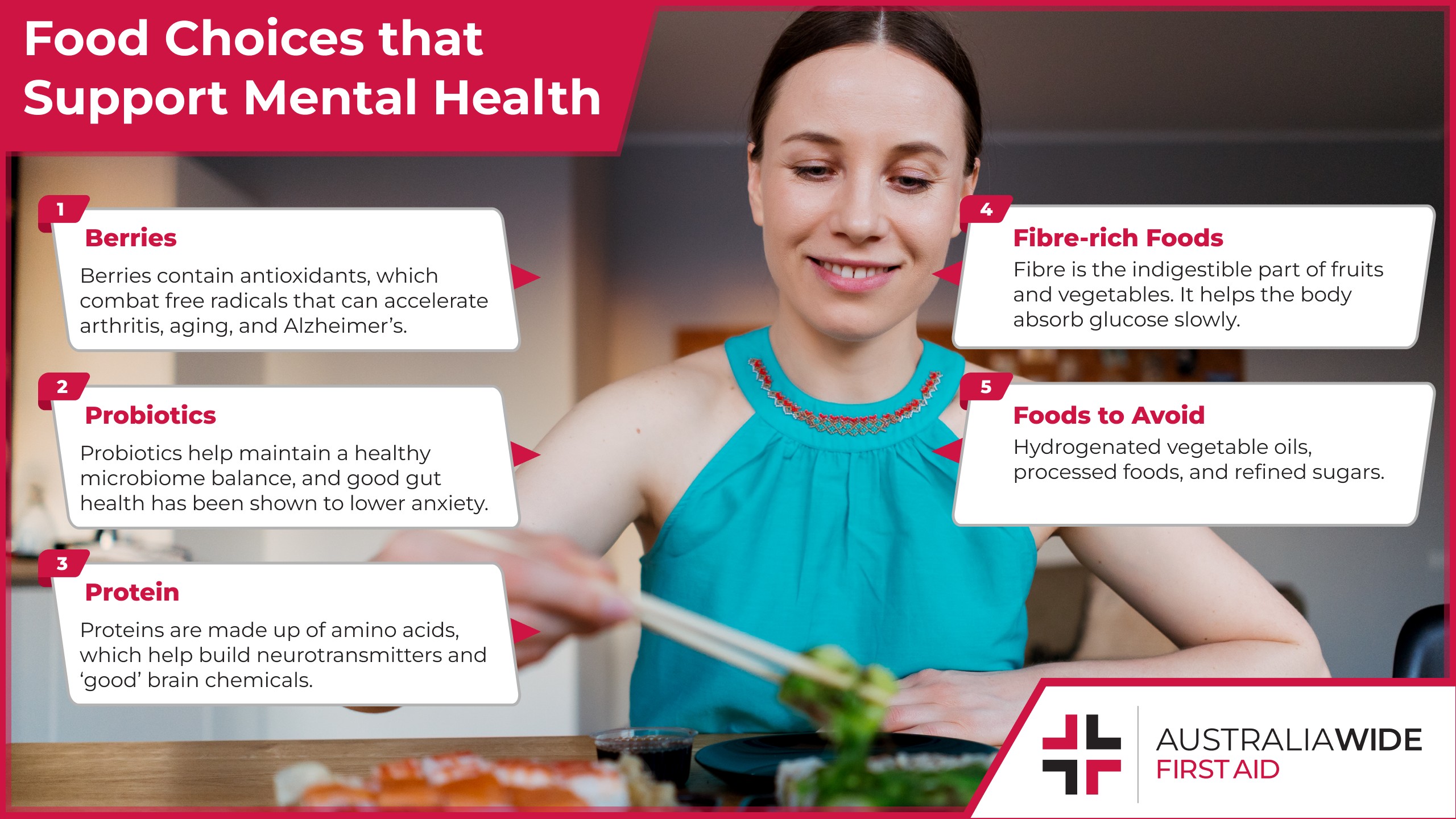Mental clarity is often described as the ability to think clearly, stay focused, and process information effectively. For professionals, it is the difference between moving through a day with sharp decision-making and energy, or struggling with fogginess, distraction, and fatigue. While sleep, stress management, and exercise all play important roles in maintaining clarity, diet is a factor that often gets overlooked. The foods we eat provide the raw materials that fuel the brain, and even subtle shifts in nutrition can significantly influence how well we think and perform. Supporting mental clarity through diet is not about chasing perfection or following rigid rules, but about making consistent choices that align nutrition with the body’s natural cognitive needs.
The brain is one of the body’s most energy-hungry organs, using about 20 percent of daily energy despite its relatively small size. This demand means that the quality and timing of fuel matter greatly. Diets high in processed foods and refined sugars can cause rapid spikes and crashes in blood sugar, leaving the brain struggling to maintain consistent performance. These swings often show up as mid-morning sluggishness or the post-lunch crash. By contrast, balanced meals that include complex carbohydrates, lean proteins, and healthy fats release energy more gradually, providing the brain with steady fuel. This steady flow supports longer periods of focus and reduces the sense of mental fatigue that can derail productivity.
Healthy fats, in particular, are critical for brain health. The brain is composed largely of fat, and its cells rely on fatty acids to function properly. Omega-3 fatty acids, found in foods such as salmon, walnuts, chia seeds, and flaxseeds, play a key role in maintaining the fluidity of brain cell membranes and supporting communication between neurons. Research has linked higher intake of omega-3s to improved memory, learning, and emotional regulation. For professionals who rely on quick thinking and resilience, ensuring that these fats are part of the diet can be seen as an investment in long-term cognitive performance. Just as businesses require the right infrastructure to communicate effectively, the brain requires the right nutrients to process information efficiently.
Antioxidants are another important dietary component for supporting mental clarity. The brain is particularly vulnerable to oxidative stress, a process where free radicals damage cells over time. This damage can contribute to memory decline and cognitive fatigue. Antioxidant-rich foods such as berries, leafy greens, dark chocolate, and green tea help neutralize these free radicals, protecting brain cells and maintaining function. Beyond their protective role, these foods also provide vitamins and minerals that support energy metabolism, further reinforcing clarity and focus. A simple way to view this is as maintenance for the brain—just as organizations invest in protecting their systems from wear and risk, antioxidants serve as protection for the body’s most important processor.
Hydration plays an equally critical role in supporting clarity. Even mild dehydration has been shown to impair concentration, short-term memory, and alertness. Because the brain is made up of about 75 percent water, it is particularly sensitive to fluid balance. Many professionals turn first to caffeine when they feel foggy, but sometimes the sharper solution is simply a glass of water. Consistent hydration throughout the day, rather than large amounts all at once, helps maintain cognitive function. Adding hydrating foods like cucumbers, oranges, or melons can also support fluid intake in a natural way. This highlights how clarity is not always about complex strategies but about simple, consistent practices that sustain brain health over time.
Micronutrients such as B vitamins, magnesium, and zinc also influence cognitive function in subtle but meaningful ways. B vitamins are essential for converting food into energy that the brain can use, magnesium supports nerve transmission and relaxation, and zinc contributes to communication between brain cells. Deficiencies in these nutrients can show up as brain fog, irritability, or difficulty concentrating. Including a variety of nutrient-dense foods such as whole grains, legumes, nuts, and vegetables helps cover these bases. Rather than focusing on single “superfoods,” a diverse diet ensures that the brain has access to the full suite of nutrients it needs to perform consistently.
Equally important is the timing of meals. Skipping meals, especially breakfast, often leads to impaired concentration and reduced problem-solving ability later in the day. The brain functions best with a steady supply of glucose, which comes from carbohydrates. But the type of carbohydrate matters—whole grains, fruits, and vegetables provide steady energy, while refined sugars offer a quick burst followed by a crash. For professionals with demanding schedules, building routines around consistent, balanced meals can make the difference between powering through a long afternoon meeting with focus or struggling to stay engaged.
Finally, the relationship with food itself can impact mental clarity. Stressful or guilt-driven eating often leads to overconsumption or reliance on comfort foods that undermine energy and focus. By contrast, mindful eating—slowing down, noticing flavors, and paying attention to hunger and fullness cues—helps regulate not only how much is eaten but also how satisfying the meal feels. This satisfaction reduces the likelihood of constant snacking and helps maintain the steady fuel the brain thrives on. Much like professionals perform best when work aligns with values and purpose, the brain performs best when eating aligns with genuine needs rather than reactive impulses.
Supporting mental clarity through diet is about creating patterns that sustain both immediate performance and long-term resilience. Balanced meals, healthy fats, antioxidants, hydration, and mindful eating all contribute to a brain environment that is well-fueled, protected, and ready to perform. For busy professionals, these practices are not just about health but about strategic choices that improve productivity, creativity, and decision-making. By aligning what you eat with how you want to think and feel, diet becomes not just a background detail but a powerful driver of clarity and effectiveness in every area of life.
Would you like me to also prepare a condensed 400–500 word version of this article that could serve as a professional wellness insight for newsletters or LinkedIn?





